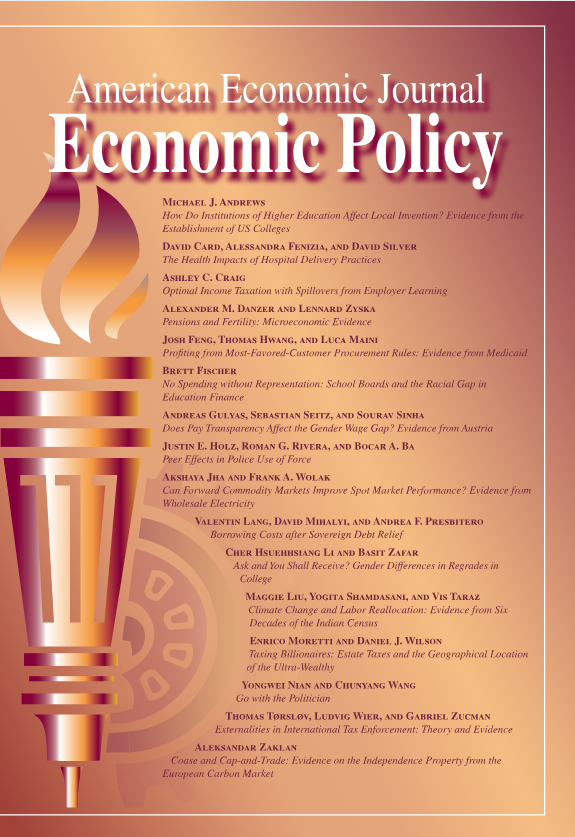探索剩余利润分配
IF 5.3
1区 经济学
Q1 ECONOMICS
引用次数: 1
摘要
在国际税收改革的讨论中,剩余利润分配(RPA)方案已成为焦点,但人们对其经济影响几乎一无所知。这些方案通过将跨国公司的“常规”利润分配给来源国,并在某种公式化的基础上在各国分享其剩余的“剩余”利润,从而对跨国公司征税。本文探讨了转向某种形式的RPA的概念和经验意义。剩余利润估计相当可观,而且集中在相对较少的跨国企业。对税收的影响似乎有利于发展中国家。除非对日常利润轻征税,否则总生产效率不太可能提高。(凝胶f23, h25, h87, l25)本文章由计算机程序翻译,如有差异,请以英文原文为准。
Exploring Residual Profit Allocation
Residual profit allocation (RPA) schemes have come to prominence in discussions of international tax reform but with almost nothing known about their economic impact. These schemes tax multinationals by allocating their “routine” profits to source countries and sharing their remaining “residual” profit across countries on some formulaic basis. This paper explores the implications, conceptual and empirical, of moving to some form of RPA. Residual profits are estimated to be substantial and concentrated in relatively few multinational enterprises. The impact on tax revenue appears beneficial for developing countries. Aggregate production efficiency is unlikely to increase unless routine profits are lightly taxed. (JEL F23, H25, H87, L25)
求助全文
通过发布文献求助,成功后即可免费获取论文全文。
去求助
来源期刊

American Economic Journal-Economic Policy
ECONOMICS-
CiteScore
8.20
自引率
1.90%
发文量
68
期刊介绍:
The American Economic Review (AER) is a general-interest economics journal. The journal publishes 12 issues containing articles on a broad range of topics. Established in 1911, the AER is among the nation's oldest and most respected scholarly journals in economics.
American Economic Journal: Economic Policy publishes papers covering a range of topics, the common theme being the role of economic policy in economic outcomes. Subject areas include public economics; urban and regional economics; public policy aspects of health, education, welfare and political institutions; law and economics; economic regulation; and environmental and natural resource economics.
 求助内容:
求助内容: 应助结果提醒方式:
应助结果提醒方式:


